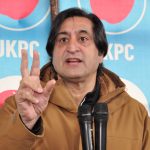
TRIBUTE
As the world gathers to honor the birth anniversary of Mahatma Gandhi on October 2nd, we reflect on the profound impact he has had not only on India but also on the entire globe. Born in 1869 in Porbandar, Gujarat, Mohandas Karamchand Gandhi emerged as a transformative figure whose philosophy of non-violence and civil disobedience reshaped the course of history. His life and teachings continue to inspire movements for peace, justice, and equality around the world.
Gandhi’s journey began in South Africa, where he experienced firsthand the injustices of racial discrimination. It was there that he developed his philosophy of Satyagraha, or “truth force,” which emphasized the power of non-violent resistance. This approach was revolutionary at the time; it challenged the prevailing norms of violence and oppression. Gandhi believed that true strength lies not in physical power, but in the ability to endure suffering without retaliation. This principle became the cornerstone of his activism and laid the groundwork for future civil rights movements globally.
Returning to India in 1915, Gandhi quickly became a central figure in the struggle for independence from British rule. He mobilized millions of Indians, uniting people from diverse backgrounds, castes, and religions under a common cause. His ability to connect with the masses was unparalleled; he advocated for the rights of the marginalized, the poor, and the oppressed. Through campaigns such as the Salt March in 1930, he demonstrated the power of civil disobedience, challenging unjust laws and igniting a sense of national pride and agency among Indians.
One of Gandhi’s most significant contributions was his emphasis on self-reliance and simplicity. He encouraged Indians to spin their own cloth, promoting the Swadeshi movement, which aimed to boycott British goods. This not only fostered economic independence but also instilled a sense of self-worth among the populace. Gandhi’s lifestyle was a testament to his beliefs; he lived modestly, wore simple clothes, and practiced what he preached. His commitment to ethical living and social justice resonated deeply, making him a moral compass for many.
Moreover, Gandhi’s vision extended beyond political independence. He envisioned a society rooted in equality, where all individuals, regardless of caste, creed, or gender, were treated with respect and dignity. His efforts to eradicate untouchability and promote gender equality were groundbreaking. He recognized that true freedom could not be achieved without addressing the deep-seated social issues that plagued Indian society. His advocacy for women’s rights and education was ahead of his time, challenging traditional norms and empowering women to take active roles in the independence movement.
As we commemorate Gandhi’s legacy, it is essential to reflect on his teachings in the context of contemporary challenges. The world today grapples with conflicts, inequality, and environmental crises. Gandhi’s principles of non-violence and peace are more relevant than ever. His belief in dialogue, understanding, and compassion offers a pathway toward resolving conflicts without resorting to violence. In a time when divisive ideologies often dominate public discourse, Gandhi’s message of unity and harmony serves as a reminder of our shared humanity.
In addition to his political and social contributions, Gandhi was a profound thinker whose writings continue to inspire. His letters, essays, and speeches delve into the complexities of human nature, ethics, and spirituality. He believed that personal transformation was vital for societal change, advocating for self-reflection and moral integrity. His famous quote, “Be the change you wish to see in the world,” encourages individuals to take responsibility for their actions and strive for a better society.
On this day of reflection, we also acknowledge the challenges that remain in fulfilling Gandhi’s vision. While India achieved independence in 1947, the struggle for justice and equality continues. Issues such as poverty, discrimination, and violence persist, calling for renewed commitment to Gandhi’s ideals. It is our collective responsibility to ensure that his teachings are not merely remembered but actively practiced in our lives and communities.
As we gather for prayer meetings, cultural programs, and community service on this anniversary, let us honor Gandhi by embodying his values. Let us commit to fostering peace, promoting social justice, and standing against oppression in all its forms. By engaging in acts of kindness, advocating for the marginalized, and striving for understanding in our interactions, we can contribute to the world Gandhi envisioned.
In conclusion, Mahatma Gandhi’s birth anniversary is not just a day of remembrance; it is an opportunity to reflect on our roles as individuals and as members of a global community. His legacy is a call to action, urging us to embrace non-violence, compassion, and justice. As we celebrate his life, may we draw inspiration from his teachings and strive to create a world that reflects the values he held dear. In honoring Gandhi, we honor the possibility of a peaceful, just, and equitable future for all.
(Author is Chief Editor, Rising Kashmir)








